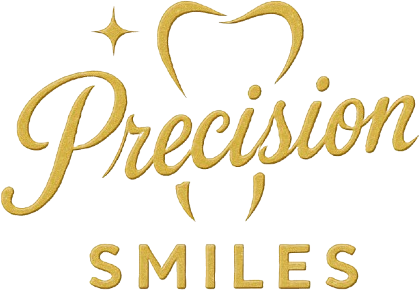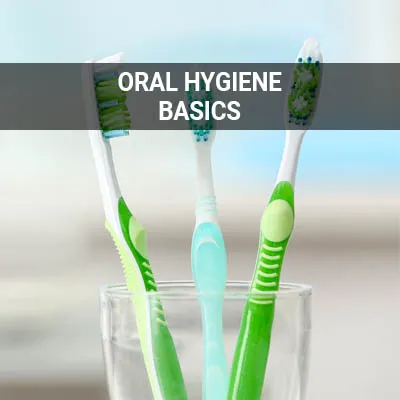How Proper Oral Hygiene May Improve Overall Health Hackensack, NJ
Dental health and general health are connected. Although dentists cannot treat general health problems, they can help manage dental concerns in patients with chronic conditions. Dentists can also perform health screenings for certain conditions, such as oral cancer, and refer patients to general physicians and other medical providers as needed.
At Precision Smiles in Hackensack, we treat dental concerns with consideration for a patient’s overall health. We want to help you be the healthiest you can be. Call us today at (201) 204-1355 to schedule an appointment or to learn more about our services.
The Oral Health Connection
According to WebMD, the mouth acts as an entryway to the digestive and respiratory tracts. It is a natural breeding ground for bacteria. Most of these are harmless and can be kept under control with proper oral health care and the body's natural defenses. However, without appropriate maintenance, disease-causing bacteria may accumulate over time.
Dental Health and Heart Health
It has been a long-established fact that there is a relationship between gum disease and heart disease. However, experts have yet to determine whether or not this is a causal relationship. Still, according to Harvard Health, several studies have supported the connection between poor oral health and cardiovascular problems, including heart attack and stroke.
Dental Health and Diabetes
Dental health and diabetes have a bidirectional relationship, meaning they both affect each other directly. Diabetes reduces the body's ability to resist infection, making patients more at risk of developing gum disease. At the same time, those with gum disease tend to have more difficulty controlling their blood sugar levels.
“According to WebMD, the mouth acts as an entryway to the digestive and respiratory tracts. It is a natural breeding ground for bacteria.”
Dental Care for Diabetics and Pregnant Women
Diabetes
People who have diabetes must be especially careful to practice good dental hygiene. Since the disease limits the body's ability to fight infection, cavities and gum disease can develop and worsen quickly in the presence of diabetes. At the same time, people who have gum disease are more likely to have unstable diabetes. Individuals diagnosed with type 1 or type 2 diabetes should work with a dentist to ward off cavities and periodontitis.
Pregnancy
There is a correlation between gum disease and adverse pregnancy outcomes. Pregnant women who have periodontal disease are more likely to experience premature delivery and to have an infant with a lower-than-average birth weight. The Centers for Disease Control and Prevention estimates that up to 75% of pregnant women have gingivitis, which occurs in the earliest stages of gum disease. Practicing good dental hygiene can reduce these risks significantly.
“Since the disease limits the body’s ability to fight infection, cavities and gum disease can develop and worsen quickly in the presence of diabetes.”
The Impact of Oral Health on Bone Health
People who have osteoporosis may take prescription medications that damage the jawbone. This complication, though rare, can eventually lead to tooth loss and jaw deterioration. When taking osteoporosis prescriptions, individuals should have a bone loss screening.
Gum disease is one of the first indicators of osteoporosis due to its effect on bone health and density. Dentists can help prevent the development of gum disease in patients with osteoporosis through various oral health services, like more frequent teeth cleanings. If gum disease is already present, they can provide treatments to halt its progression. This is a proactive way to reduce the patient’s risk of advanced gum disease and tooth loss.
“Accordingly, neglecting to maintain one’s oral hygiene will inevitably negatively affect one’s overall health (and vice versa).”
Check out what others are saying about our dental services on Yelp: How Proper Oral Hygiene May Improve Overall Health in Hackensack, NJ
Dental Health and Other Conditions
Aside from heart disease, diabetes, pregnancy, and osteoporosis, there are many other conditions linked to dental health. These include but are not limited to pneumonia, rheumatoid arthritis, and Sjorgen's syndrome. Patients need to be as open and honest as possible with their dentist, as certain conditions or even recent bouts of illness may affect the type of dental care they need.
According to a 2015 study published in the Journal of Dental Research, poor oral hygiene was identified as one of the leading risk factors for pneumonia in nursing home residents. Furthermore, rheumatoid arthritis and periodontal disease are both linked to severe inflammation. This may make patients more susceptible to Sjögren's syndrome, which causes dryness of the mouth that causes difficulty eating and raises a patient's risk for tooth decay.
“Aside from heart disease, diabetes, pregnancy, and osteoporosis, there are many other conditions linked to dental health.”
Questions Answered on This Page
Q. How does dental health affect the rest of the body?
Q. How does dental hygiene affect patients with diabetes?
Q. How can oral health impact bone health?
People Also Ask
Q. What are some of the common dental conditions that occur during pregnancy?
Q. Why is preventative care important? How can it save you money?
Q. What family members may need extra help with their oral hygiene?
Maintaining Oral Hygiene at Home
Keeping regular dental appointments is crucial for maintaining oral health, as each patient requires personalized care. Luckily, there are many things patients can do on their own to take care of their teeth.
Patients should brush their teeth at least twice a day: once in the morning and once before bedtime. Germs and plaque accumulate throughout the day and should be removed whenever possible. It is essential to use proper technique while brushing and to remember to include the tongue. Using a fluoride toothpaste will also offer extra protection against tooth decay.
Flossing should be treated with the same importance as brushing, as it can help stimulate the gums while reducing plaque and inflammation. Those who have trouble using dental floss may want to look for alternatives, such as ready-to-use flossers. Swishing with a good quality mouthwash afterward also helps, as does drinking water, eating crunchy fruits and vegetables, and limiting sugary and acidic foods.
Frequently Asked Questions
Q. What are the signs of oral health problems?
A. People should see a dentist if they experience pain, swelling, bleeding, or sensitivity in the mouth or gums. Chronic bad breath can also signify tooth decay. In severe cases, the person may have loose or missing teeth.
Q. What conditions have been linked to poor oral health?
A. Many people are surprised to learn how many conditions are linked to poor oral health. Diabetes, pulmonary, and cardiac disease are all linked to oral health conditions. Periodontal disease is also a complication of osteoporosis.
Q. How should I prepare for a visit with a dentist?
A. Patients should prepare for their first appointment by attaining their medical records or providing access to them. Write down any questions about oral health and how it may affect overall health. The dentist will ask for the patient's symptoms, medical history, medication use, habits, nutrition profile, and other information that can influence dental and systemic health, so have these details ready.
Q. Why is dental care important to overall health?
A. Many oral health conditions and systemic diseases do not produce symptoms until advanced stages. Screening by a professional can help treat any existing conditions or prevent future problems from happening. Regular dental visits also provide patients with access to treatments that can help prevent oral health problems from worsening.
Dental Terminology
Call Us Today
Our team at Precision Smiles may be able to help. Call us today at 201-204-1355 to schedule an appointment or to learn more about our services.
Helpful Related Links
- American Dental Association (ADA). Glossary of Dental Clinical Terms. 2025
About our business and website security
- Precision Smiles was established in 1992.
- We accept the following payment methods: American Express, Cash, Check, Discover, MasterCard, Paypal, and Visa
- We serve patients from the following counties: Bergen County
- We serve patients from the following cities: Hackensack
- National Provider Identifier Database (1326549189). View NPI Registry Information
- Norton Safe Web. View Details
- Trend Micro Site Safety Center. View Details
Back to top of How Proper Oral Hygiene May Improve Overall Health
QR code for How Proper Oral Hygiene May Improve Overall Health











